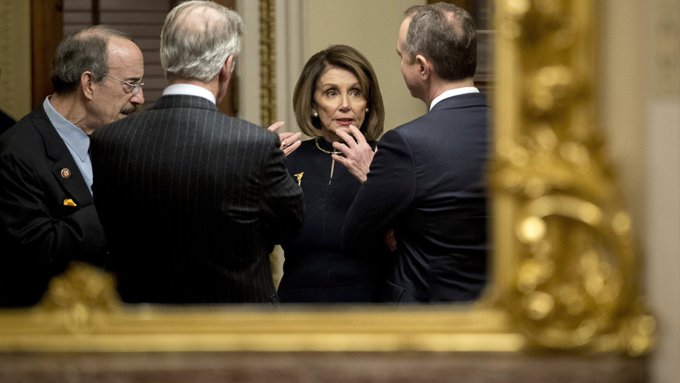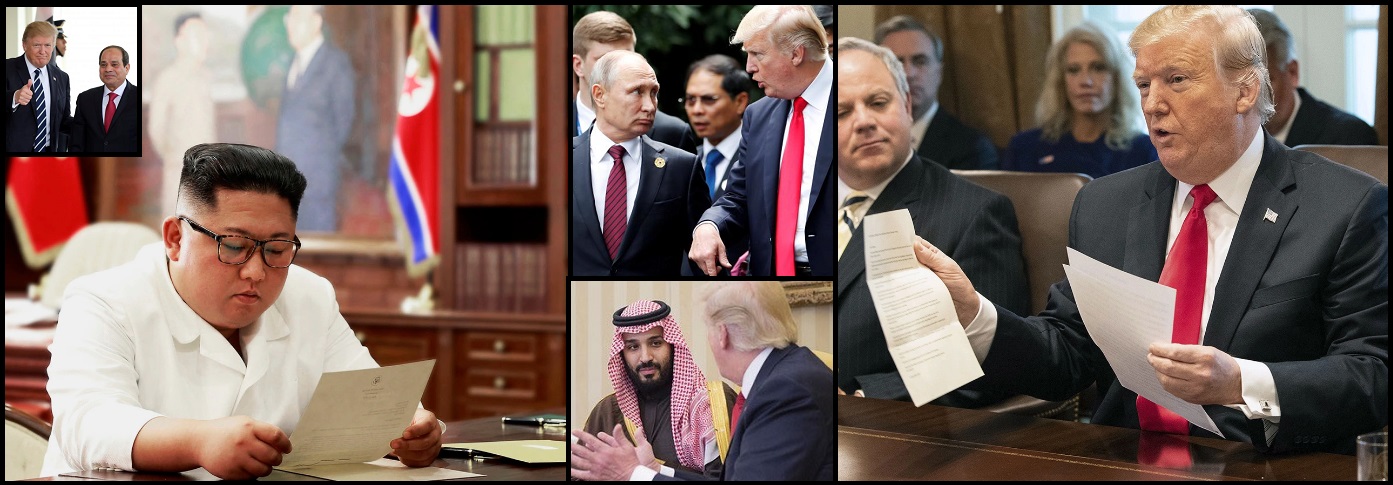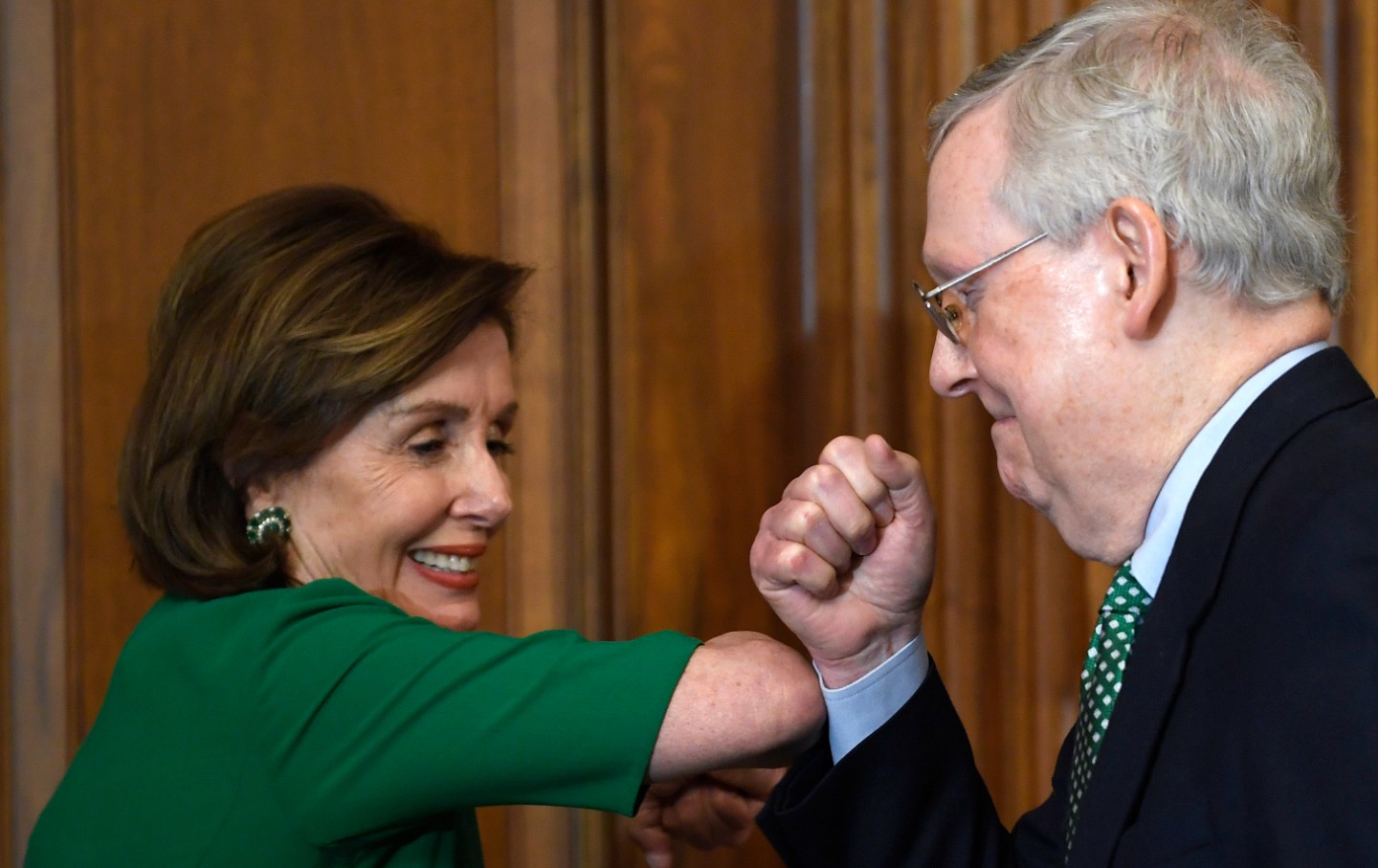After reading the entire 75-page transcript of the National Archives and Records Administration (NARA) testimony to congress [READ HERE], a testimonial that almost no one in the mainstream news has written about, issues surrounding the document search against President Trump take on some new context.
The NARA officials are essentially professional DC bureaucrats with a mission to look out for the best interests of the DC system they support. It is very clear from their opinion; Donald Trump was considered an outsider to the DC system of government – and that baseline established the framework for why and how NARA took such extreme processes with President Trump.
From the transcript, one NARA official says, “I am storing 555,000 cubic feet of classified national security information. To put that in perspective, the white boxes that many of you have seen in your offices, that is a cubic foot. It holds about 2,500 pages. Another way for me to describe it, a typical stack area that we store records in a Federal records center can hold about 100,000 cubic feet. And that is a room that is about roughly the size of a football field. So you are looking at five and a half football fields floor to ceiling shelving.” {Transcript, page 24}
President Trump did not turn over the letter left to him by President Obama, nor did President Trump turn over the 27 letters exchanged between himself and North Korea Chairman Kim Jong-un. NARA was looking for these along with other documents pertaining to President Trump engaging in discussions with other foreign leaders, and NARA was angry about the perceived lack of respect shown by Trump toward their endeavor.
However, when you take the current DC establishment system, look at the history of the Trump administration engagement in foreign policy, then overlay that dynamic with the gatekeeping responsibilities outlined by NARA, what you may discover is an entirely different prism through which to view the DC motives.
One can easily argue the Deep State per se’ was looking for notes, information, contacts, tips and hints of discussions that took place between Trump and foreign leaders, that may have actually exposed the mechanisms of DC money and policy laundering.
 Consider the NARA apoplexy around the Trump-Kim letters as outlined on pages 43 & 44 of their testimony. However, expand your perspective to get larger than simply the Trump-Kim letters.
Consider the NARA apoplexy around the Trump-Kim letters as outlined on pages 43 & 44 of their testimony. However, expand your perspective to get larger than simply the Trump-Kim letters.
NARA officials view themselves, their role, as more important than the President of the United States, that is very clear. NARA officials consider themselves “gatekeepers” to government information. The gatekeepers were not happy with President Trump not following protocols when he was not in office. An example from media:
The Washington Post’s Greg Miller reported Sunday that President Donald Trump’s confiscation of the translator’s notes from a one-on-one conversation with Russian President Vladimir Putin in 2017 was “unusual.” This is incorrect. It was unprecedented. There is nothing like it in the annals of presidential history.
It is also truly unusual that Trump failed to bring in a note taker, along with his translator, during his meetings with Putin, as almost every other president has done when meeting with foreign heads of state since the end of World War II. Usually the note taker is an official or aide with deep background in the subject under discussion.
[…] There are good reasons for presidents to bring a note taker with them to such meetings. First, they want a record of what was said, both to remind themselves later of what happened and to confirm or dispute some later account of the meeting, either by the foreign leader or some reporter. Second, the president’s national security officials want to know what was said so that they can orient policy accordingly. Third, historians value these notes, once they’re declassified, as a record of behind-the-scenes U.S. foreign policy. (link)
 President Trump was violating institutional norms. He was not following the unwritten rules of the DC bureaucracy; a political system that is predicated on maintenance of a financial system where US policy is promoted with laundered dollars that flow back to the politicians.
President Trump was violating institutional norms. He was not following the unwritten rules of the DC bureaucracy; a political system that is predicated on maintenance of a financial system where US policy is promoted with laundered dollars that flow back to the politicians.
Think about the risk that DC viewed from Trump’s processes that violated their norms. Think about the meetings they would not know about. Think about the conversations that might take place without their knowledge.
Think about Vladimir Putin (Russia), Abdel Fattah al-Sisi (Egypt), Mohammed Bin Salmon (Saudi), Viktor Orban (Hungary), or even Lopez-Obrador (Mexico), talking openly to President Trump about how their nations were told to engage with U.S. political systems via the State Dept., or functional politicians on various committees.
Think about the apoplexy amid a DC system built on selling foreign policy and gaining affluence, when suddenly there is a guy in the office of the President who has never made a dime from this network and financial construct. Think about how the DC Democrats and Republicans would view Trump from the perspective of his personal engagement with foreign government officials who know the dirt on those same DC Democrats and Republicans. Think about the fear inside the beltway as a result of this.
Consider yet another example from 2018:
2018 – President Donald Trump and North Korean leader Kim Jong Un held their first-ever meeting, and there may never be a full record of what was said.
After meeting shortly after 9 a.m. (local time) for a handshake and photo-op, the two leaders entered a library at Capella Hotel on Singapore’s Sentosa Island to begin a one-on-one bilateral meeting. The two men were each accompanied only by an interpreter, raising concerns among experts.
Suzanne DiMaggio, who facilitated the first official discussions between North Korea and the Trump administration last year, recently said that without aides present “the fear is that he [Trump] might give away too much.”
But while Trump, and Kim, regularly stray off diplomatic scripts, a larger risk may be that there may be no full transcript, public or secret, of what the two leaders discussed. (link)
Think about a DC system that is built upon leverage and blackmail worrying about a President who might gain leverage and blackmail with evidence of their corrupt endeavors. What would this DC system do to make sure that evidence, if it existed, was never used?
Think about an elitist and very eco-chambered DC political system viewing President Trump through the prism of a vulgarian man who will say anything, expose anything, and discuss anything without curtailment or consideration for the collateral damage his words may create. Think about the palpable fear that would reverberate amid a professional political class who have created this system for their own financial benefit.
Does the desperation of NARA and the DC political establishment take on a new perspective?


Excellent analysis. Totally disgusting situation. Potemkin Village on the Potomac.
Spot on. DJT never used a computer. He watched TV and read print. He also used the phone. There is no digital trail. He could not be blackmailed. Everything else falls into place knowing this.
If Nara only requested the letter from Obama and the letters from Kim Jong – why would Trump send a whole box to them with Classified material interspersed?
It doesn’t matter who does it, but drain the swamp of these creatures. –€
Of course this agency is Deep State corrupted too. Anything possible to give themselves power—especially over the Presidency—they will attempt. Presidents have kept certain artifacts private forever. That’s what getting 100 million votes earns you.